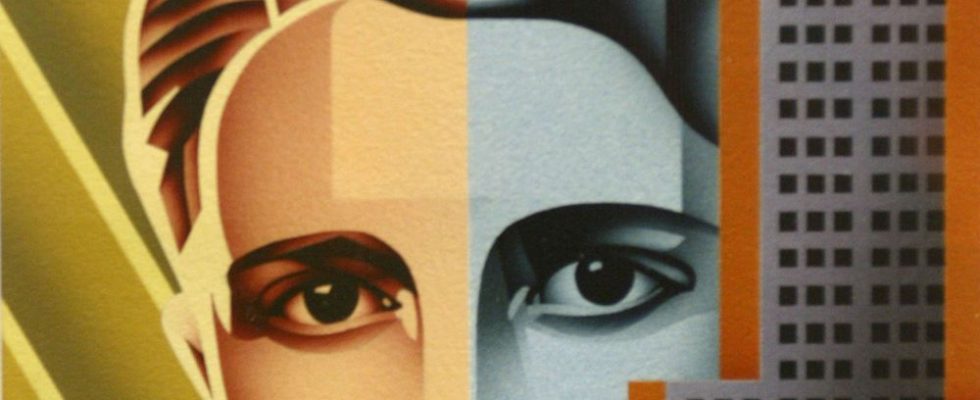A leading novelist of American culture, madonna of capitalism, Ayn Rand is the source of several bestsellers. The most famous, Strike, appeared in 1991 in second place in a ranking of the most influential books in America (behind… the Bible), and still sells hundreds of thousands of copies a year. However, like baseball, the author remains very little known in France, where her ethics of selfishness and a minimal state run counter to our intellectual landscape. A new translation of We the livinghis first novel and the most autobiographical of all, is a good opportunity to discover it.
Ayn Rand, born Alisa Rosenbaum in 1905 in Saint-Petersburg, was the eldest of a bourgeois Jewish family that sank into precariousness after the October Revolution. A film student, she made the Soviet authorities believe that she would put American techniques at the service of communist propaganda. She embarks for New York and will never return. There, she became a successful novelist and mother of a philosophy, theobjectivism, which continues to gain followers. Her hatred of a socialist ideology that took everything from her, and the defense of the individualist and capitalist values that she embraced, irrigate the pages of We the living.
Kira Argounova is a young woman who dreams of becoming an engineer during the 1917 revolution. In a deadly atmosphere, Kira resists by cultivating her values: marking the urban landscape through technical progress, bringing to life her passion for music, and the men who ‘she likes. Three things banned by the system: distinction through personal prowess, fun, and love as an expression of a preference for an individual’s values.
She falls in love with Léo, a resistance fighter, but also with Andreï, a member of the GPU [NDLR : police d’Etat soviétique]. It doesn’t matter that their ideals are at odds: Kira values a person’s consistency with their values. Leo is sentenced for having opened a store. Andreï finds out about his relationship with Kira, but for her, he saves Leo from prison, betraying his socialist values.
A political UFO
This novel, like a tragedy, shows how these three characters enter into resistance, each in their own way, against a lethal totalitarianism. Dark Leo, crushed by a system that only works if men are undead. Kira tries to save him, before realizing it would entail his own sacrifice. Andrei bends under the inhuman rigor of his ideology. Kira, the only one to flee, embodies the love of life and Rand’s mantra: freedom or death.
“How many five-year plans will it take to figure it out?” In his preface, Rand clarifies that this novel is not about Soviet Russia, but about the individual against the state and the dictatorship, whichever one. For her, no political system is superior to individual freedom. The idea that one has to live for an ideology is dangerous nonsense. A detail that escaped the Italian fascist authorities, who, in 1942, thought of broadcasting an anti-communist propaganda film (in two parts: Noi vivi And Addio Kira!)… before banning it.
Rand was throughout his writings (conferences, novels, philosophical treatises) a witness of his time and a political UFO. She criticizes the economic policy of Roosevelt and Kennedy, but also the American commitment in Vietnam. Advocate of abortion, anti-racist, sporting a brooch in the shape of a dollar, she remains unclassifiable: too progressive for the Republicans, too capitalist for the Democrats.
We the living East the first stone of a building dedicated to individualism. In France, where the consensus was built around a strong, interventionist state, Rand had little chance of being emulated. Today, when the pension reform and the violence of the demonstrations worry the French, and when the presidential function and the power of the institutions are questioned, the call for the individual responsibility of We the living has something refreshing.
